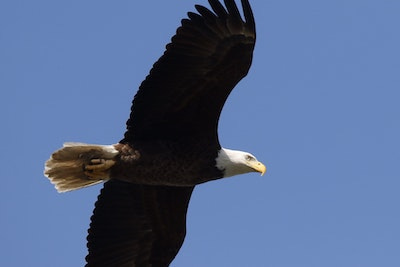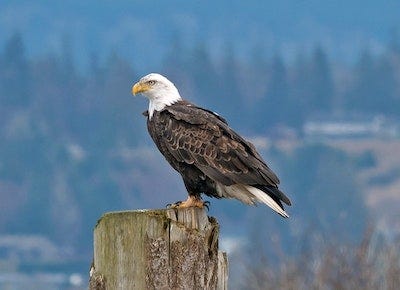The Weird Times: Issue 60, July 4 2021 (V2 #8)
America
Centre of equal daughters, equal sons,
All, all alike endear’d, grown, ungrown, young or old,
Strong, ample, fair, enduring, capable, rich,
Perennial with the Earth, with Freedom, Law and Love,
A grand, sane, towering, seated Mother,
Chair’d in the adamant of Time.
—Walt Whitman
We, therefore, the Representatives of the united States of America, in General Congress, Assembled, appealing to the Supreme Judge of the world for the rectitude of our intentions, do, in the Name, and by Authority of the good People of these Colonies, solemnly publish and declare, That these United Colonies are, and of Right ought to be Free and Independent States; that they are Absolved from all Allegiance to the British Crown, and that all political connection between them and the State of Great Britain, is and ought to be totally dissolved; and that as Free and Independent States, they have full Power to levy War, conclude Peace, contract Alliances, establish Commerce, and to do all other Acts and Things which Independent States may of right do. And for the support of this Declaration, with a firm reliance on the protection of divine Providence, we mutually pledge to each other our Lives, our Fortunes and our sacred Honor.
The complete text of the Declaration of Independence courtesy of the Gutenberg Project.
My name is no one
The long lost son
Born on the 4th of July
Raised in the era of heroes and cons
That left me for dead or alive
I am a nation
A worker of pride
My debt to the status quo
—“21st Century Breakdown,” Green Day, by Billie Joe Armstrong, Tre Cool, Mike Dirnt, © W.b.m. Music Corp., Green Daze Music
I used to sleep at the foot of Old Glory
And awake in the dawn's early light
But much to my surprise
When I opened my eyes
I was a victim of the great compromise
—"The Great Compromise,” by John Prine © Walden Music
Happy 4th of July Birthday
Bill Withers, 1938, Edmonia Lewis, 1845, Rube Goldberg, 1883, Irving Caeser, 1895, Robert Desnos, 1900, and of course, Ron Kovic, born on the 4th of July, 1946.
American Destiny
Critical race theory: What it is and what it isn’t, David Miguel Gray, The Conversation, 6/30/21
The development of critical race theory by legal scholars such as Derrick Bell and Crenshaw was largely a response to the slow legal progress and setbacks faced by African Americans from the end of the Civil War, in 1865, through the end of the civil rights era, in 1968. To understand critical race theory, you need to first understand the history of African American rights in the U.S. …
Critical race theory is a field of intellectual inquiry that demonstrates the legal codification of racism in America.
Through the study of law and U.S. history, it attempts to reveal how racial oppression shaped the legal fabric of the U.S. Critical race theory is traditionally less concerned with how racism manifests itself in interactions with individuals and more concerned with how racism has been, and is, codified into the law.
There are a few beliefs commonly held by most critical race theorists.
First, race is not fundamentally or essentially a matter of biology, but rather a social construct. While physical features and geographic origin play a part in making up what we think of as race, societies will often make up the rest of what we think of as race. For instance, 19th- and early-20th-century scientists and politicians frequently described people of color as intellectually or morally inferior, and used those false descriptions to justify oppression and discrimination.
The economics of dollar stores: A visual explainer of the numbers behind America’s ubiquitous bargain-basement chains, Zachary Crockett, The Hustle, 6/26/21
When Activist Poets Took Over a Tiny California Town: Uncovering a Unique Chapter in the History of American Poetry, Lytle Shaw, Lithub, 6/30/21
It is safe to say that most poets, literary scholars and even cultural historians remain unaware of exactly what American poets undertook in Bolinas. But imagine a city of about 500 people basically run by poets. No, it was not as dysfunctional as the image that just flashed into your brains: buildings aflame above monumental piles of uncollected garbage with a distant circle of hippies, unaware, out smoking weed on the nighttime beach. There were problems and conflicts, to be sure, but also a lot that transcended our received image of the 60s as an era simply about personal visions, indulgent drug use, and narcissistic and finally destructive attempts at self-care.
Instead, poets in Bolinas sought to create an ecologically sustainable town where anyone could be an agent of news-making. Aware of their amazing natural resources—the views, the air, the sun, the northern Californian smells—they worked toward keeping these aspects of the town collective, and not privatizing it.
Read more about the Bolinas poets in On the Mesa: An Anthology of Bolinas Writing 50th Anniversary Edition
Promised Lands: Forming a lasting covenant with place, Lisa Wells, Orion Magazine
The foundational myth of the American West relies on the idea of a wild emptiness. The colonizers saw the land as unutilized frontier, predestined by God for their control and cultivation. The journals of Meriwether Lewis are filled with the usual composite of beauty and peril ascribed to the “wild” by colonist eyes. Lewis toggles between endless “scenes of visionary enchantment” and merciless torment by foul weather, sickness, bears, and mosquitoes that “invade and obstruct us on all occasions.”
This view of the nonagrarian landscape as simultaneously alien, dangerous, and untouchably beautiful unfortunately persists today among many well-meaning conservationists. A view that holds us apart from true intimacy—and thus, the capacity to coexist—with our own ecosystems. Lewis’s partner on the expedition, William Clark, pretty much summed it up in commenting on the death of one of their party: “Thus a man had like to have starved to death in a land of plenty.”
The Constitution, Says the Court, Favors Republicans, Harold Meyerson, The American Prospect, 7/1/21
It was the legendary columnist Finley Peter Dunne who first wrote—back in 1901—that the Supreme Court followed election returns. Today’s Court is a little more ambitious than that: It sees its mission as deciding election returns—in Republicans’ favor.
Republicans Trumpify Electoral System to Steal Future Elections, Alex Kotch, Exposed by Center for Media Democracy, 6/30/21
When President Joe Biden was campaigning last year, he said that Republicans would have “an epiphany” when Donald Trump left office and find ways to work with Democrats. To the contrary, Republicans have doubled down on Trump’s anti-democratic efforts to manipulate elections to their advantage.
Using the evidence-free Big Lie that Democrats stole the presidency by committing mass voter fraud as an excuse, Republican state lawmakers have passed or proposed hundreds of voter suppression bills, many that will have disproportionate effects on people of color and young voters, constituencies that tend to support Democrats.
When a Black boxing champion beat the ‘Great White Hope,’ all hell broke loose, Chris Lamb, The Conversation, 6/30/21
An audacious Black heavyweight champion was slated to defend his title against a white boxer in Reno, Nevada, on July 4, 1910. It was billed as “the fight of the century.”
The fight was seen as a referendum on racial superiority – and all hell was about to break loose in the racially divided United States.
Jack Johnson, the Black man, decisively beat James Jeffries, nicknamed “the Great White Hope.” Johnson’s triumph ignited bloody confrontations and violence between Blacks and whites throughout the country, leaving perhaps two dozen dead, almost all of them Black, and hundreds injured and arrested.
“No event yielded such widespread racial violence until the assassination of Dr. Martin Luther King, Jr., fifty-eight years later,” Geoffrey C. Ward wrote in his biography of Johnson, Unforgiveable Blackness.
The heat is high and we are living in the Future
A bombshell report from closely followed International Energy Agency: As important as the ‘what’ of this report is the ‘who’ – the influential IEA – said it. It’s a message commanding attention, Daniel Grossman, Yale Climate Connections, 7/1/21
Climate researchers and policy experts around the world are singing praise of a study just released by the stodgy International Energy Administration in Paris. “Quite amazing,” said one. “Heartening,” said another. A third one called it, “one of the most important climate analyses ever published.”
The report offers a blueprint of how the global community might still manage to accomplish the 2015 Paris Agreement’s goal of preventing the planet from warming more than 1.5°C (2.7°F) above the preindustrial temperature. It requires a complete halt to prospecting for new fossil fuels and a breathtaking acceleration of wind and solar energy development.
In the Amazon, farming the forest to save the forest: A groundbreaking Brazilian community demonstrates how to farm sustainably in the Amazon—no cattle necessary, Brian Barth and Flavia Milhorance, Food and Environment Reporting Network, 6/28/21
Open a new road in the Amazon and deforestation most often follows, creating a landscape of big sky, white cows, and green pastures. But on back roads around the frontier town of Nova Califórnia, in a remote corner of northwestern Brazil, a renewed verdant canopy closes in.
A dry California creek bed looked like a wildfire risk. Then the beavers went to work, Isabella Bloom, Sacramento Bee, 7/1/21
Seven years ago, ecologists looking to restore a dried-out Placer County floodplain faced a choice: Spend at least $1 million bringing in heavy machines to revive habitat or try a new approach.
They went for the second option, and turned to nature’s original flood manager to do the work — the beaver.
The creek bed, altered by decades of agricultural use, had looked like a wildfire risk. It came back to life far faster than anticipated after the beavers began building dams that retained water longer.
Preparing for Climate Change: It's About Time: Time is of the essence, yes, but how can we make time now to face a future that's coming all too fast? Karen Christensen, Karen’s Letter, 7/1/21
But we also need to adapt, to live and eat and travel differently. I have 3 tips for you today that actually make a difference and don’t take much time at all.
If you are using A/C, compare the setting to the heat setting you use in the winter. In the US, it’s common to set A/C to a lower temperature, which makes no sense at all. Surely we can agree that we should feel a bit warmer in summer than in winter? Adapting to temperature fluctuations is something human bodies are good at, and it’s good for our health. (I’m not talking about the extremes we’ve been seeing, of course.) Even a few degrees up or down will make a difference in energy use.
(This is a water-saving tip, too.) Scrape rather than rinse dishes before putting them in a dishwasher. Some people use a spatula, but I just grab a fork that’s going in anyway. And when the wash cycle is done, turn the machine off, open the door, and let the dishes air dry.
During this week’s heatwave in the northeast (nothing like the extreme heat of the west, admittedly), I’ve been conscious of the heat put out by the dryer. Sure, it might be running on green electricity, but it’s heating the house, and the outdoors as it vents hot air. I have never had the time or patience to take laundry outside to a clothesline (or, heaven forbid, to use clothespin as my grandmothers did). What I do instead is to pull out only the big items, like jeans and towels, which take a lot of machine drying but are easy to hang. I have a Victorian-style rack above the bathtub, just down the hall from the laundry, but even more practical is this wall-mounted drying rack in the laundry room itself.
Ditching grass could help your backyard thrive: Lawns are ecological ‘dead space.’ Experts explain how to design a more eco-friendly yard, Tik Root, Washington Post, 6/30/21
But how we care for our lawns is secondary to the amount of lawn we have in the first place, experts say. Having less grass and more plants is among the most important factors in keeping a yard eco-friendly.
“Lawn, ecologically, is dead space,” said Doug Tallamy, an entomologist at the University of Delaware and author of Nature’s Best Hope: A New Approach to Conservation That Starts in Your Yard.
Which Crops Can Survive Drought? Nanosensors May Offer Clues: The technique can be used to track how water flows through plants—which could be key to breeding more resilient crops in an increasingly hot, dry climate, Keith Gillogly, Wired, 7/2/21
For crops climate change is literally a growing problem.
The warming of our planet has increased the odds of drought worsening throughout the world. In the US, it’s threatening soybean, corn, and wheat production, and the future isn’t looking much wetter. So with water in short supply, we might try to plant crops that manage it more efficiently. “A big focus today is breeding for a changing climate,” says Abraham Stroock, a professor of chemical and biomolecular engineering at Cornell University. “We want to discover new traits and their genetic origins for resilience in a hot and dry climate of our future—of our today in many parts of the world.”
Lakes Are Losing Oxygen—and Their Inhabitants Are in Danger: Hundreds of temperate lakes around the world are showing trends toward anoxia, becoming warmer, murkier, and less hospitable to cold-water species, Jennifer Clare Ball, Wired, 6/29/21
Stratification is normally affected by season; it increases as the air warms. But climate change is hurrying that up. “That spring season has been moving earlier and earlier, which means stratification, that difference in density, is moving earlier and earlier too,” Rose says. Because it starts sooner, stratification lasts longer throughout the year, leaving the lake and its inhabitants with lower oxygen for prolonged periods of time.
Rose identified a second problem too: Deep water is becoming less clear because of a host of factors including erosion, algal growth, and fertilizer runoff from nearby agricultural fields and residential developments. Murkier waters make plants less likely to survive, which means less photosynthesis and less oxygen down below. And that, of course, is bad news for the lakes’ creatures. “Just like humans, every complex life form on the planet depends on oxygen,” Rose says. “In water, that’s in the dissolved form.”
The Future is Plastics
New Zealand to ban most single-use plastics by 2025: Ban on plastics including cotton buds, packaging, cutlery, straws and fruit labels to be phased in from next year,Tess McClure, The Guardian, 6/27/21
Currently one of the top 10 per-capita producers of landfill waste in the world, New Zealand has announced it will ban a swathe of single-use plastics, including cotton buds, bags, cutlery, plates and bowls, straws and fruit labels.
What Comes After This Plastic-Filled Pandemic? A new generation of medical professionals is tasked with undoing decades of hospitals’ easy reliance on single-use plastic, Jaime Kaiser, Yes Magazine, Summer 2021
“The medical community got away with it for a very long time, but the sheer volume of medical waste is beginning to catch up with them,” Friedel says.
Many medical facilities across the U.S. have some kind of recycling program, but market disruptions, factory closures, and pandemic-related shipping delays have introduced hurdles to seamless recycling.
“The recycling market for certain plastics in health care [is] very troublesome right now,” says Janet Howard, member engagement director with Practice Greenhealth, a nonprofit that, among other health care sustainability efforts, partners with medical providers to reduce waste. “We’d rather look for opportunities to go back to reuse.”
West Coast cleanup nets over 200 tonnes of marine debris, Rochelle Baker, National Observer, 6/28/21
For weeks at a time, crews have been scouring remote sections of the West Coast — digging out massive fishing nets, hauling lines, tossing thousand of buoys and shifting mountains of Styrofoam to try to make a dent in the ocean refuse finding its way onto B.C.’s wildest shores.
A shocking 210 tonnes of flotsam and plastic detritus was removed over six weeks from a mere 300 kilometres of the province’s intricate 25,000-kilometre shoreline during this year’s massive cleanup of the ecologically sensitive foreshores of the Great Bear Rainforest.
Scientists find microplastics embedded in New Bedford and Cape Cod salt marshes, Anastasia E. Lennon, South Coast Today, 6/29/21
According to a new study, though, some marshes — built up for years and years by layers of sediment — contain countless plastic fragments and fibers under their surfaces, some so tiny they're only visible through a microscope.
Javier Lloret, a research scientist at the Marine Biological Laboratory in Woods Hole and a lead author, said the study is the first step in considering what implications microplastics have for salt marshes.
Birds are on the Wing
At Orchards and Vineyards, Birds Are Outperforming Pesticides, Greg Breining, All About Birds, 6/25/21
Across America and beyond, farmers and vineyard and orchard owners are enlisting wild birds—from raptors to songbirds—in a sustainable battle against pests. They erect nest boxes, install raptor perches, or plant inviting native cover—all of which offer less expensive natural pest control than other traditional methods.
Birds are environmentally benign, while poisons are not. And pest-controlling birds stay on the job, while pesticides must be reapplied, and the effect of bird-scaring balloons, hawk silhouettes, and propane cannons quickly wears off.
Amazon eagle faces starvation in 'last stronghold,' Helen Briggs, BBC News, 7/1/21
Conservationists say one of the world's largest eagles has "nearly zero" chance of surviving Amazon deforestation.
According to a new study, the bird is struggling to feed its young in parts of the rainforest that have been stripped of trees.
About 17% of the Amazon has been destroyed over the past 50 years, and losses have recently been on the rise.
The harpy eagle is the largest in the Americas, with huge talons for hunting monkeys and sloths in the treetops.
Birds are suddenly dying: What’s causing mystery illness in Ohio, Kentucky, Indiana? WLWT Staff, WLWT.com, 6/28/21
Since May, wildlife officials in various states have had numerous reports of several dead birds or birds with similar symptoms. If they're not dead, they're having symptoms of some sort of neurological issue.
Puffy, swollen eyes with a crusty discharge are some of the symptoms spotted in the birds that are falling sick in parts of Cincinnati.
Flooding Fields in the Mississippi Delta Helps Crop Yields—and Shorebirds, Vanessa Gregory. All About Birds, 6/25/21
“If you could flood 100 acres on each of those farms, you’d have 20,000 acres of temporary wetlands,” Hoeksema said. “That’s more than enough habitat for all the birds that migrate through every fall.”
Inside the Measure
“I might put you in my will” —Al Young
small pleasures in the passage of time
our motion defines its meaning
songs stick in my ear
fragments of noise
imagined spaces between notes
where silence allows rhythm
blued notes
those bluets across a climax forest floor I once traversed
in search of magic mushrooms where
a pileated woodpecker rode me down to
winged victory
random moments stand out
from the myriad of noise and whispers
how much longer do we have
good night to every song and singer
who brings us closer to that moment
when time stops
—David Wilk
July 4, 1983: Dave Righetti of the New York Yankees pitched a no-hitter against the rival Boston Red Sox.
The battle for Mount Rushmore: ‘It should be turned into something like the Holocaust Museum,’ Annette McGivney, The Guardian, 7/3/21
Phil Two Eagle is not opposed to the fact that the giant sculpture of American presidents is a major tourist attraction but he thinks the park should have a different focus: oppression.
“It should be turned into something like the United States Holocaust Museum,” he said. “The world needs to know what was done to us.”
I say it with a sad sense of the disparity between us. I am not included within the pale of glorious anniversary! Your high independence only reveals the immeasurable distance between us. The blessings in which you, this day, rejoice, are not enjoyed in common. The rich inheritance of justice, liberty, prosperity and independence, bequeathed by your fathers, is shared by you, not by me. The sunlight that brought light and healing to you, has brought stripes and death to me. This Fourth July is yours, not mine. You may rejoice, I must mourn.” —Frederick Douglass, July 5, 1852
“The white man will never be alone. Let him be just, and deal kindly with my people. For the dead are not powerless.” ― Chief Seattle, The Chief Seattle’s Speech
“…[Y]ou cant steal nothin’ from a white man ’cause he stole everything he’s got. He owes you anything you want, even his life.” —Amiri Baraka
Best wishes to all. Let us stay strong against all odds. Be well. Keep in touch.








